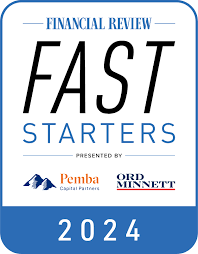Social Media
Opportunities
- Large audience: Social media platforms, such as Facebook, Instagram, and Twitter, boast billions of active users, providing an opportunity to connect with an extensive audience.
- Targeted: Social media platforms offer a variety of targeting options, making it feasible to tailor campaigns for optimum impact.
- Engagement: Social media marketing is a great way to build relationships and engage with an audience. This can be especially useful for nurturing relationships, building brand awareness and loyalty.
Challenges
- Constant updates: The dynamic nature of social media necessitates continuous adaptation to platform updates and trends, demanding consistent effort and vigilance.
- Over-saturation: The vast number of businesses and content creators on social media can make it difficult for any single entity to stand out. Content can easily get lost in the noise without a clear differentiation or unique value proposition.
- Time-Intensive: Creating, curating, and scheduling high-quality content, as well as engaging with followers, can be time-consuming. It often requires a dedicated team or individual to manage effectively.
- ROI Measurement: While engagement metrics are easily accessible, tying social media efforts directly to sales or conversion can sometimes be challenging, making it difficult for brands to assess the true ROI of their social media initiatives.
Influencers
Opportunities
- Targeted audience: Partnering with influencers can provide an opportunity to reach a targeted, specific audience that is already primed for related products or services.
- Trust and credibility: Influencers have built up trust and credibility with their followers, offering an authentic voice that can effectively endorse and advocate for a brand or product.
- Engagement: Influencers tend to foster active and involved communities. Collaborating with them can result in increased interactions and, potentially, higher conversion rates for businesses.
Challenges
- Cost: Working with influencers can be expensive, especially if you work with influencers who have large followings. This channel has the potential stretching financial resources so it's important to make informed decisions about this investment.
- Difficulty finding the right fit: It can be challenging to find the right influencers to work with whose values, audience, and style align seamlessly with a brand's identity and goals.
- No guarantee of success: While influencer marketing can be effective, there is no guarantee of success, making the return on investment a variable factor.
Content Marketing
Opportunities
- Budget-friendly Approach: Content marketing often leans on in-house resources, making it a more budget-friendly alternative compared to traditional advertising methods.
- Long-term results: Content marketing is focused on building long-term relationships and brand awareness, rather than driving short-term sales. This means that the results of content marketing efforts may not be immediate, but they can have a long-lasting impact.
- SEO benefits: Regularly producing quality content not only appeals to audiences but can enhance search engine visibility, leading to increased organic traffic.
Challenges
- Time-consuming: Crafting and disseminating top-notch content demands substantial time and dedication, necessitating regular output to maintain engagement.
- Difficulty measuring ROI: It can be difficult to measure the ROI of content marketing, as the results may not be immediate or directly tied to sales.
- Competition: With so many businesses using content marketing, it can be difficult to stand out from the competition. Investing in other platforms like SEO and promoting content can help content to reach the target audience.
Other Considerations when exploring marketing channels
Don't Neglect Offline Marketing
- While the digital realm dominates, traditional marketing methods like events, print advertising, and public relations can be impactful, especially tailored for specific business models or campaigns.
Test and optimise
- It's important to test different approaches and optimise marketing efforts based on the data-driven results. This can involve activities like A/B testing email subject lines, adjusting targeting options on social media, or experimenting with different ad formats. By constantly testing and optimising, can help to make the most out of marketing efforts.
Consider your resources
- When choosing which marketing platforms and tactics to use, it's important to consider the resources available, including budget, time, and expertise. Some approaches may require more investment or expertise than others, so it's important to choose the ones that are the most realistic and feasible for the business.
Be consistent
- Consistency is key in marketing, as it helps build trust and credibility with an audience. Whether it's visuals, tone, or message, uniformity across platforms is a must.
Integrating multiple digital marketing channels for a holistic approach
Integrating multiple digital marketing channels is vital for a comprehensive and cohesive strategy. We suggest starting by identifying the core message or objective of a campaign. Then, adapt this message to fit the unique strengths and characteristics of each channel, ensuring a consistent voice and branding. Utilise tools like UTM parameters to track cross-channel performance, and constantly analyse data to understand how channels influence and complement each other. Understanding the customer journey across all touch points, can help to create seamless transitions, optimise each channel's potential, and deliver a unified brand experience to the audience.
Explore digital marketing channels for your business
Digital marketing is an important component of a successful business strategy in today's online environment. The effectiveness of each marketing tool varies and requires a thoughtful evaluation before implementing the right channel selection for a business. In essence, understanding each tool's potential and pitfalls empowers businesses to shape strategies that effectively resonate with and convert their audience.
Related topics:
Digital Marketing Strategy
Paid Advertising






























